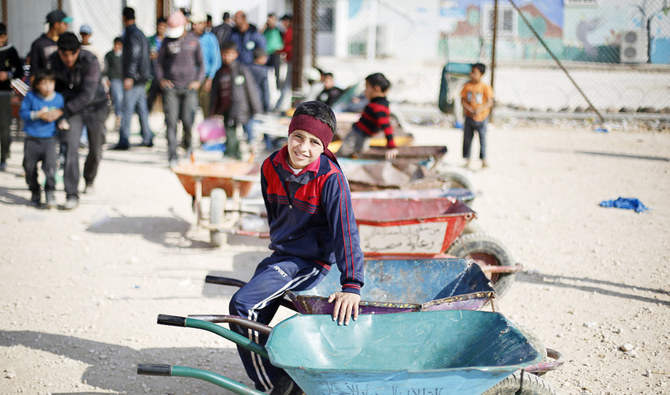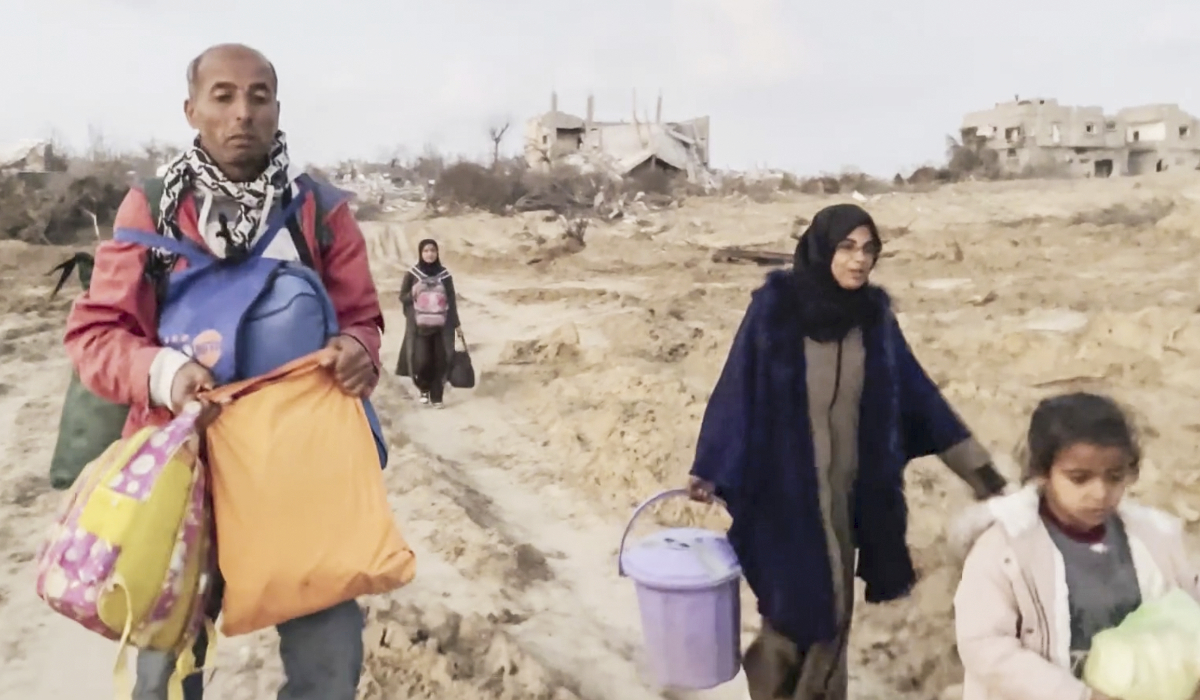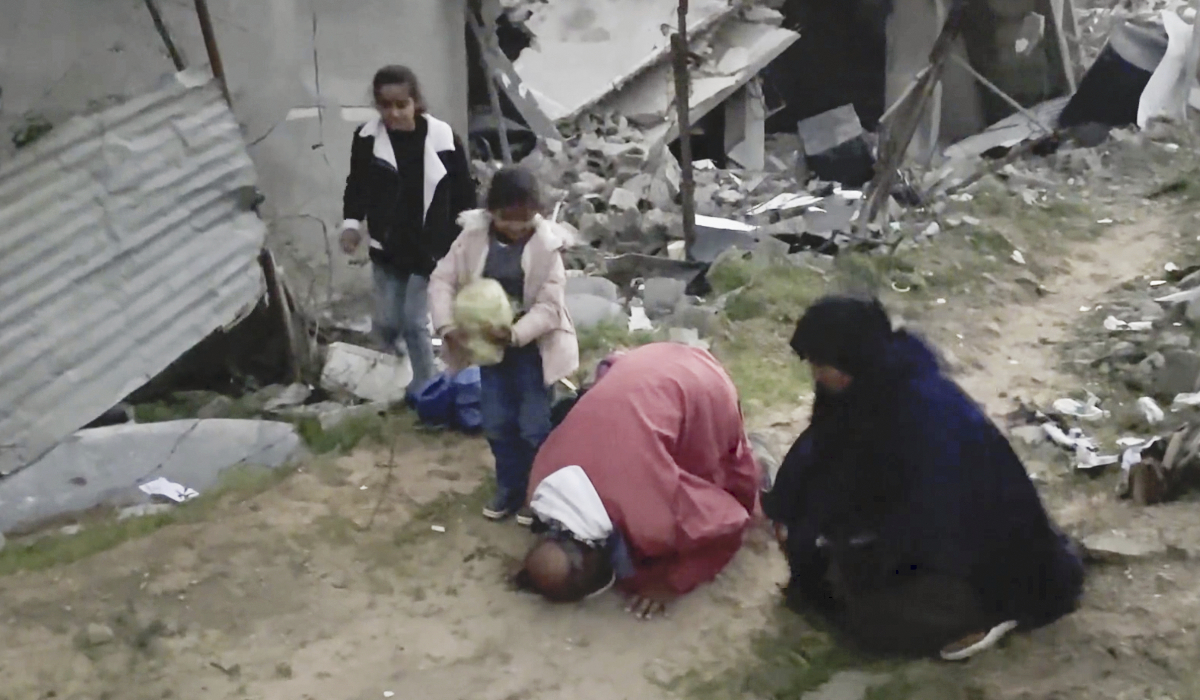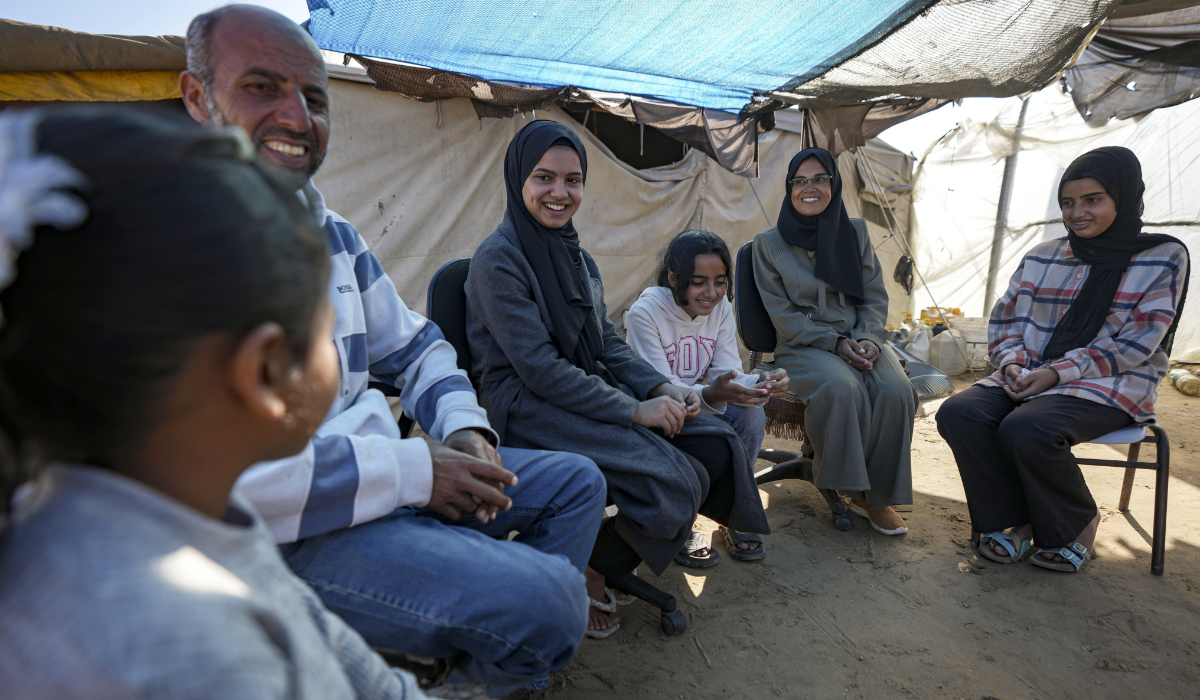BEIRUT: Inspectors from the Lebanese Ministry of Labor carried out raids on shops, factories and establishments employing illegal foreign labor, especially Syrian workers across the country on Wednesday. The ministry has given employers a month to regularize the situation of their foreign workers.
Lebanon hosts 938,531 Syrian refugees registered with the UN Refugee Agency (UNHCR), and they are not allowed to work. The country also hosts about half-a-million Syrian workers allowed to work in agriculture, construction and as janitors in buildings and establishments after getting sponsorship from the employer.
The Ministry of Labor’s campaign targeted Beirut, Beirut’s southern suburbs, Jounieh, Bekaa, the south and the north. Violators were asked to regularize their situation. A number of grocery stores, small restaurants and auto repair shops run by Syrians were closed, and barbers, beauty salons, water distribution companies, butcheries, sewing shops and bakeries employing Syrians were given time to regulate their workers’ situation.
Labor Minister Kamil Abu Suleiman said: “Those who are betting on time for the plan to back down are mistaken, and those who think we lack patience and will grow tired are also mistaken.”
“We are applying the law in a courteous, calm and dignified but strict manner,” he added.
Abu Suleiman rejected the argument that there is “the scarcity or lack of Lebanese workers in some sectors.” He said: “It is unacceptable to say that there are no Lebanese workers. They must prove this to us. These are merely words that people are passing on. We are not against registering foreign workers, but we are against this logic. If they prove to us that there are no Lebanese workers, only then we shall contact the competent unions to verify the truth of this argument and give the foreign workers work permits—but this excuse is totally unacceptable.”
On the fines for each violation, he said: “Employers must pay a fine of 1.5 million Lebanese pounds (about $1,600) for every violation. If a shop is not licensed, it will be closed until the owner regulates his situation. A violation can be resolved within a period of two weeks, and the owner/employer will be required to pay 10 percent of the fine, which equals 250,000 Lebanese pounds.”
The Ministry of Labor’s plan to combat illegal foreign labor highlighted that “the number of Syrian refugees is almost a third of the Lebanese population, and hundreds of thousands of them are competing with the Lebanese citizens in various sectors. Their work is no longer limited to agriculture and construction, but they have moved their markets, establishments and brand names to Lebanon and opened thousands of illegal shops. There are also seasonal and temporary workers, and this situation cannot be borne by any country in the world.”
Abu Suleiman pointed out that there has been a rumor that Syrian workers do not need work permits, and that obtaining from the Lebanese General Security a temporary residence permit that is constantly renewed would exempt them from the need for a work permit.”
The Ministry of Labor figures showed that in the middle of this year, the number of Syrians with valid work permits was only 1,733.
The minister said: “Employers are not registering Syrian workers despite the fact that there are facilitations and exemptions, therefore a plan had to be developed to combat everything that is illegal.”
UNHCR spokesperson Lisa Abou Khaled told Arab News: “While three quarters of Syrian refugees in Lebanon live below the poverty line and 51 percent live under the extreme poverty line (on less than $3 per day), less than half of the population receive food support ($27 per person per month) and only 19 percent receive other cash support ($175 for a whole family per month). As a result, 90 percent of Syrian refugees have $1,000 in debt because they cannot cover their most essential needs.”
She added: “UN agencies, including UNHCR, are in discussion with the Ministry of Labor on the issue of employment of Syrian refugees. It is important for us that refugees are aware of discussions and decisions that may impact them.
FASTFACT
• Lebanon hosts 938,531 Syrian refugees registered with the UN Refugee Agency (UNHCR), and these are not allowed to work.
• The country also hosts about half-a-million Syrian workers allowed to work in certain sectors.
• Lebanon also has 200,000 Palestinian refugees who have been living in camps for six decades and are allowed to work in 73 occupations after obtaining a work permit.
“As you know, Syrians are allowed to work in three sectors (agriculture, construction, environment/cleaning services). This has been the case historically, even before the start of the Syria crisis.
“The nature of the work in these three sectors is often on a daily labor basis, and has been historically less regulated than other sectors. If documents are required in the informal casual labor field, it is important that refugees have the possibility to comply with these requirements, including those who may not have all their ID documents. It is common for a person in a refugee situation to lack certain identity documents that they may have left behind when they fled.”
A number of human rights organizations working in the field of relief for Syrian refugees in Lebanon have spoken up against the restrictions on Syrian refugees. They also called on the Lebanese authorities to “guarantee the right of defense against the forcible deportation of Syrians from Lebanon.”
These organizations include the Legal Agenda, Ruwad Al-Houkouk, Alef, the Lebanese Center for Human Rights, Umam Documentation and Research, Lebanon Support, the Social Media Exchange (SMEX) and the Lebanese Observatory of Workers and Employees’ Rights.
These organizations believe that the decisions of the Supreme Council of Defense and the director-general of General Security to deport all the Syrians who sneaked into Lebanon after April 24, 2019, are a violation of the constitution, Lebanese laws and international obligations. They argued that these decisions authorize the implementation of deportation decisions by non-competent authorities and under summary offenses without ensuring that the Syrians’ lives and freedoms are not at risk in Syria and without granting Syrians the right to defense through judicial recourse.
According to the human rights organizations, these decisions jeopardize the lives of Syrians who are at risk if they are forcibly returned to Syria, with consideration for the sovereignty of the Lebanese State and its right to protect its borders.





























